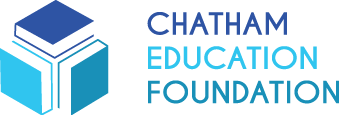The pandemic affected almost every aspect of our lives as we knew it. We have all learned how to adapt and pivot in most situations. Unfortunately, our young learners who were/are in their formative years of learning how to communicate and read will be impacted for years to come.
According to EdSource, “Early literacy, the development of skills needed to transition from learning to read to reading to learn, is foundational to later academic success. Studies suggest that many children have lost momentum on such fundamental skills. A cluster of new studies shows that about a third of children in the youngest grades are missing reading benchmarks. One study found that early reading skills were at a 20-year low this fall.”
We have to support our young children, both at home and at school, to help decrease the impact of the pandemic. EdSource offers the following suggestions to help boost early literacy.
Early Literacy: 5 Easy Tasks to Support Early Literacy at Home
Talk it up: Children begin acquiring language skills at birth, so parents should talk to children as much as they can. Describe to them what you are doing or tell them stories.
Bedtime story: Reading aloud to children is a critical way to plant the seeds of literacy. Cuddling together with parents over a book every day helps children associate reading with warmth and happiness. Engage children by talking about the characters and getting their opinions on what makes a great book.
Children from lower income families may hear 30 million fewer words by age 3 than children from higher-income families. Building at-home libraries and providing access to books is essential for children.
Don’t push it: Keep it fun and don’t put pressure on kids to sound things out before they are ready. Try to pick out books they like and be prepared to read them over and over. Repetition is important.
Engage them with art: Try setting up an art and writing space somewhere with paper, markers, and crayons where children can feel free to scribble, draw, or color. This helps develop hand/eye coordination and motor skills that will be vital to later development.
Get messy: Toddlers may have more fun learning their letters if they can trace them out with their finger in shaving cream or whipping cream. They can then smooth it out and try again. A sand tub or popsicle sticks are also good options.
Children who fall behind learning these early literacy skills can oftentimes find themselves struggling with their schoolwork. It is essential that we support them in any way we can. Reading is fundamental to the success of all students. It is the most critical academic skill because it sets the foundation for all learning. Without a strong foundation in reading, children can be left behind at the beginning of their education.
